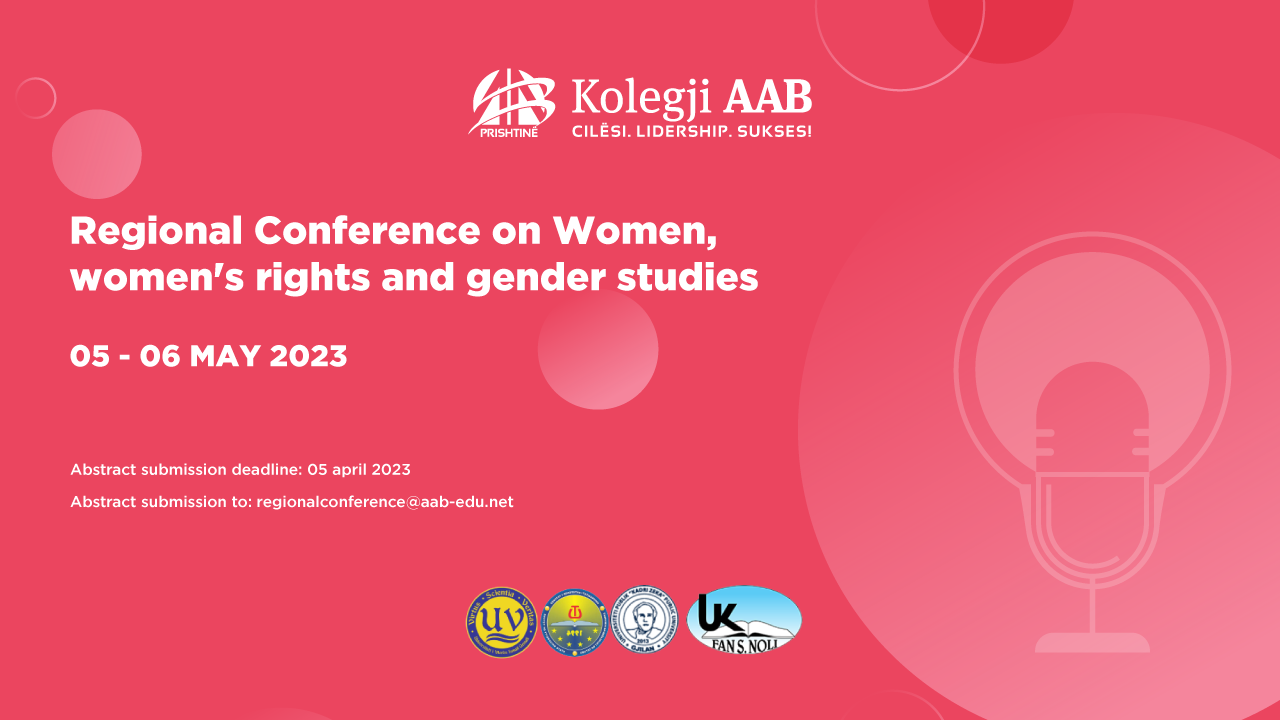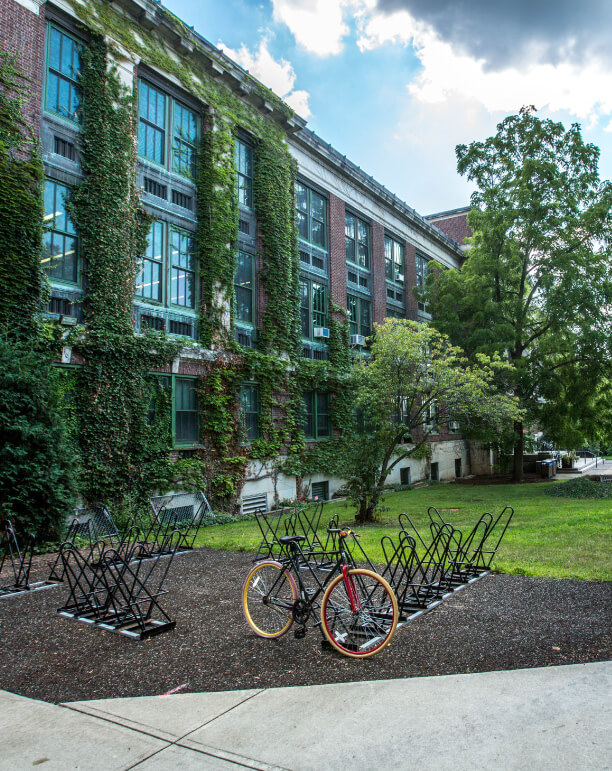Regional conference: Women, women’s rights and gender studies
Prishtinë: 05.05.2023 - 06.05.2023
Type: Regional conference:
Organizer:
PARTNER INSTITUTIONS
• University Fan Noli of Korçe, Albania
• State University of Tetova, North Macedonia
• State University of Gjilan Kadr Zekai, Kosovp
• University Ismail Qemali of Vlora, Albania
The Balkans have a complex history marked by conflict, war, and political instability. Throughout the region's history, women have been among the most marginalized and oppressed groups. However, in recent years, there have been significant efforts to improve women's rights in the Balkans. Despite these efforts, women in the Balkans still face many challenges. In some countries, there are still deeply ingrained cultural attitudes that limit women's opportunities and restrict their freedom.
Women also face barriers to accessing education, healthcare, and employment, which can prevent them from achieving economic independence. Research is essential to understanding the challenges that women in the Balkans face and identifying effective strategies to improve their rights.
Researchers can help policymakers and civil society organizations to design programs and policies that promote gender equality and protect women's rights. One area where research is particularly important is in understanding the prevalence and impact of gender-based violence in the region.
Domestic violence is a significant problem in many Balkan countries, and women who experience it often face stigma and a lack of support. Researchers can help to document the extent of the problem, identify risk factors, and develop effective interventions. Another important area of research is the economic empowerment of women. Women in the Balkans are often concentrated in low-paying jobs and are underrepresented in decision-making roles. Researchers can help to identify the factors that limit women's economic opportunities and develop strategies to promote their participation in the workforce and leadership positions. Finally, research can also help to promote women's political participation in the Balkans. Women are underrepresented in political office throughout the region, and there are often cultural and institutional barriers that prevent them from running for office. Researchers can help to identify these barriers and develop strategies to promote women's participation in politics. In conclusion, improving women's rights in the Balkans is crucial for the region's development and stability. Research plays a vital role in identifying the challenges that women face and developing effective strategies to promote gender equality. By investing in research and supporting women's rights, the Balkans can become a more inclusive and prosperous region for all.
Against this understanding, AAB College organizes an academic conference focused on women, women’s rights and gender studies in the region. The academic conference is significant for several reasons. First, it provides a platform for scholars, researchers, and practitioners to share their knowledge, ideas, and experiences related to the topic. This can help to build a collective understanding of the issues facing women in the Balkans and identify potential solutions. Second, the academic conference will provide an opportunity to disseminate research findings and raise awareness about the challenges that women face in different spheres of society. This can help to bring attention to the issue and mobilize action to address it. Third, the academic conference provides a forum for networking and building partnerships between scholars, researchers, practitioners, and other stakeholders to facilitate collaboration and joint efforts to address the challenges facing women in the Balkans.

Important dates
- Abstract submission deadline: 5 April 2023
- Abstract acceptance notification: 12 April 2023
- Conference: 5 and 6 May 2023
- Full paper submissions: 1 June 2023
SCIENTIFIC PANEL SESSIONS AND ABSTRACT SUBMISSION DETAILS
Abstracts can be submitted for the following six subtopics to [email protected]
Please note that the abstract should be submitted in a word format, Times New Roman, 12 pt. and should not exceed 300 words. Please also provide 5 keywords.
The subtopics are as following:
1. Economics and women’s rights
- Representation of women in management and leadership in Kosovo
- Economic perspectives on the roles of women
- Changing economic roles of women and men
- The role of women entrepreneurs in transition economy
- Other related topics
2. Public administration and women’s rights
- The role of women in political processes and decision-making
- The empowerment of women in politics
- The gender quota in Kosovo: Necessity or discrimination?
- Other related topics
3. Law and women’s rights
- Domestic violence with focused attention on violence against women
- The right of inheritance as an indicator of gender equality
- Women’s rights guaranteed by local and international legislation
- Socio-economic integration of women in the Republic of Kosovo
- Other related topics
4. Social sciences and women’s rights
- The role of social policies in women’s rights
- The role of the media in promoting women's rights
- Gender representation in leadership positions in educational institutions
- Other related topics
5. Language and gender
- online construction of gender identities
- gender language in the context of protests
- language and female politicians
- gendered language and/of parenthood
- mediatized representation of women
- gender balanced language in the public media sphere
- female sense of humor
- construction of females across genres and contexts
- Other related topics
6. Psychology and gender
- The psychological effects of discrimination in the workplace
- Work-family balance for women and men
- Patriarchy and violence against the women
- The psychological effects of war-related sexual violence and trauma in women
- Other related topics
SCIENTIFIC COMMITTEE
- Prof. asst. dr. Uranela Demaj
- Prof. asst. dr. Venera Llunji
- Prof. asst. dr. Fëllanzë Pula
- Prof. asst. dr. Arbërore Bicaj
- Dr. Mimoza Kamberi
- Prof. asst. dr. Mentor Lecaj
- Prof. dr. Roland Zisi
- Juliana Ajdini
- Prof. assoc. dr. Juliana Ajdini
- Orif, assoc. dr. Artemisi Shehu Dono
- Prof.ass.dr. Sonela Stillo
- Prof. ass. dr. Magdalini Vampa
- Dr. Mitjana Profiri
- Prof. Dr. Drita Fazlia Mamudi
- Prof. asst. dr. Gjeraqina Leka
- Prof. asoc. Dr. Dukagjin LekaProf. asst. Dr. Selim Daku
- Prof. assoc. dr. Frosina Londo zv. Rektore
- Prof. assoc. dr. Aleksandar Takovski
ORGANIZING COMMITTEE
- Prof. asst. dr. Uranela Demaj
- Dr. Aida Alla
- Prof. ass. dr. Violeta Buza
- Prof. ass. dr. Blerta Haliti Baruti
- Elsa Zyberaj
- Ganimete Ismajli
- Albulena Brestovci
- Donjeta Murtezaj















